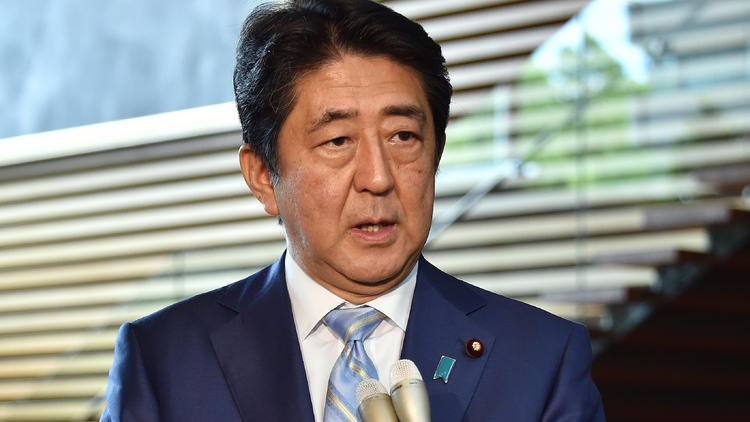Eiko Kawasaki, 74, was born to Korean parents in Japan. At 17, lured by propaganda about how good life was in North Korea, she boarded a ship for the socialist state. She wouldn’t get out for 43 years. (Julie Makinen / Los Angeles Times)
In April 1960, not yet finished with high school, 17-year-old Eiko Kawasaki boarded a Soviet ship called the Kryl’ion in the Japanese port of Niigata and set sail on the journey of a lifetime, to a place she was told was paradise: North Korea.
She and hundreds of her fellow passengers had heard about free housing and guaranteed jobs in Kim Il Sung’s socialist state. And they felt a sense of kinship: All were either ethnic Koreans born in Japan or Koreans brought to Japan to work during the 1910-1945 colonial era, when Japan harshly occupied and ruled the Korean peninsula.
Although Kawasaki wasn’t entirely swayed by the utopian propaganda, she figured that North Korea at least would offer her an escape from the discrimination and poverty facing ethnic Koreans in Japan after World War II.
And like millions of idealistic young people around the world at the dawn of the 1960s, Kawasaki saw hope in leftist politics. “There was a thought that maybe socialism was better,” recalled Kawasaki, now 74. “Plus, people were thinking that Kim Il Sung could reunite Korea.”
The response of the Japanese government has generally been to put the blame entirely on North Korea. That makes no sense historically.
— Tessa Morris-Suzuki, a scholar of Japanese and Korean history at Australian National University
To be sure, South Korea would have been a more natural choice — both her parents were from there. But that was not an option: With South Korea still struggling to recover from the 1950-53 Korean War, U.S.-backed strongman Syngman Rhee was in no mood to accept migrants — even Koreans who simply wanted to go back to where they had come from.
So over the objections of her parents and four siblings, Kawasaki decided to go to North Korea and check things out. If everything was as promised, she would send for them in a year.
As the Kryl’ion approached the dock in the city of Chongjin, Kawasaki spotted a former classmate on the shore who had returned a few months earlier.
“Turn back!” she recalled him yelling.
It was too late.
It would be more than 43 years before Kawasaki managed to go home.
::
Perhaps the most stunning thing about Kawasaki’s life story is that it is not extraordinary at all.
She was just one of more than 93,000 people who left Japan for North Korea from 1959 to 1984. Most departed in the first wave, which lasted until 1963. Almost all were “returning” to a place they had never been. After the Treaty of San Francisco in 1952, Japan did not consider such ethnic Koreans to be citizens. If they left, they had no right to return to Japan — even if North Korea had been willing to let them travel.
An estimated 97% of Koreans in Japan after World War II had come from the southern part of the peninsula. And about 6,000 of the “returnees” to North Korea were Japanese women married to Korean men.
But behind the altruistic veneer, there was more at work, said Tessa Morris-Suzuki, a scholar of Japanese and Korean history at Australian National University and author of a book on the returnees, “Exodus to North Korea: Shadows From Japan’s Cold War.”
Correspondence from the Red Cross archives and elsewhere shows Japanese officials regarded the large population of ethnic Koreans in Japan as an unwanted hangover from the colonial era; they were characterized as a burden on state coffers and a possible “fifth column” threat to national security, Morris-Suzuki found. Japanese policies excluding Koreans from national healthcare and pension programs added pressure on them to leave.
Kawasaki says the interviews at the Niigata departure center were perfunctory, and in some cases one representative was allowed to speak for an entire family, which meant men may have taken their wives and children against their wishes.
Chang Myeong-Su, a former Chosen Soren official who worked on the repatriation campaign but later became a harsh critic of it after hearing that numerous returnees had been arrested and mistreated, went a step further in his own 2003 book on the topic, Morris-Suzuki said. He characterized the repatriation campaign as a racist government’s attempt at ethnic cleansing, abetted by humanitarian organizations.
NEWSLETTER: Get the day’s top headlines from Times Editor Davan Maharaj »
Japan’s Foreign Ministry responded to detailed questions about the campaign with a terse statement saying that the Japanese government had asked the Red Cross “to confirm the will of those who wished for … repatriation and to provide necessary assistance as a mediator.” It said that in May 2014, North Korea had promised to investigate the treatment of Japanese nationals, but that “the abductions and other humanitarian issues have not been resolved yet.”
Japan has shown great concern over one group of its citizens trapped in North Korea for decades. The government has waged a long and vocal campaign to try to get Pyongyang to account for at least 17 Japanese citizens it believes were abducted by North Korean agents in the 1970s and ’80s. Five such abductees were returned alive to Tokyo in 2002; Pyongyang says the rest are dead or were never kidnapped in the first place.
Although the abductees are a signature issue for Prime Minister Shinzo Abe, the government has shown much less concern for the 93,000 people like Kawasaki.
The response of the Japanese government has generally been to put the blame entirely on North Korea,Morris-Suzuki said.That makes no sense historically.

The government may believe that raising the issue of the 93,000 returned people would only complicate its efforts on the abduction front. Or perhaps the topic just hits too close to home for Abe; His grandfather Nobusuke Kishi served as prime minister from 1957 to 1960, when the program was approved and started.
Why the U.S. didn’t strenuously object to the transfer of nearly 100,000 people from Japan to a Cold War enemy state is another unanswered question. But at the time the boats started departing from Niigata, Tokyo and Washington were in the midst of negotiating the renewal of their security treaty to keep U.S. troops in Japan — a pact that Kishi supported.
::
Kawasaki said she did her best to make a life in North Korea. She studied engineering and got a job in industrial design. She married a North Korean man and had four daughters and a son, kept her head down. But many returnees were never fully accepted, their loyalties always in question, said one of Kawasaki’s daughters, who now goes by the name Sora Li.
When Kawasaki made the risky decision to flee North Korea in 2003, she did so quietly. Li didn’t find out until nearly a year later when her husband was up for a promotion at his government job and higher-ups blocked it. The reason? His mother-in-law was missing.
Li was shocked. “I was angry. My mother and I really weren’t speaking then. I blamed her for many things — as kids we were bullied because our mother was from Japan.”




